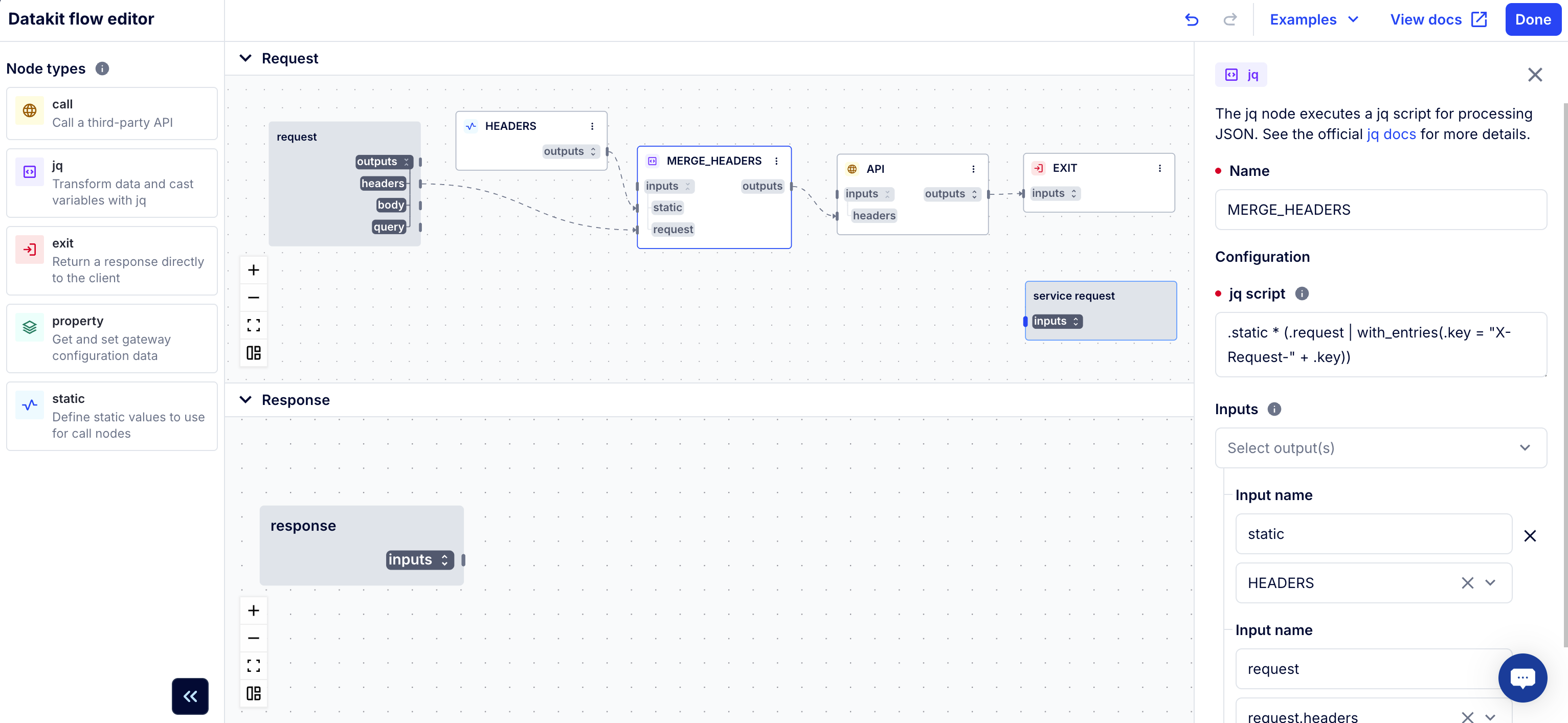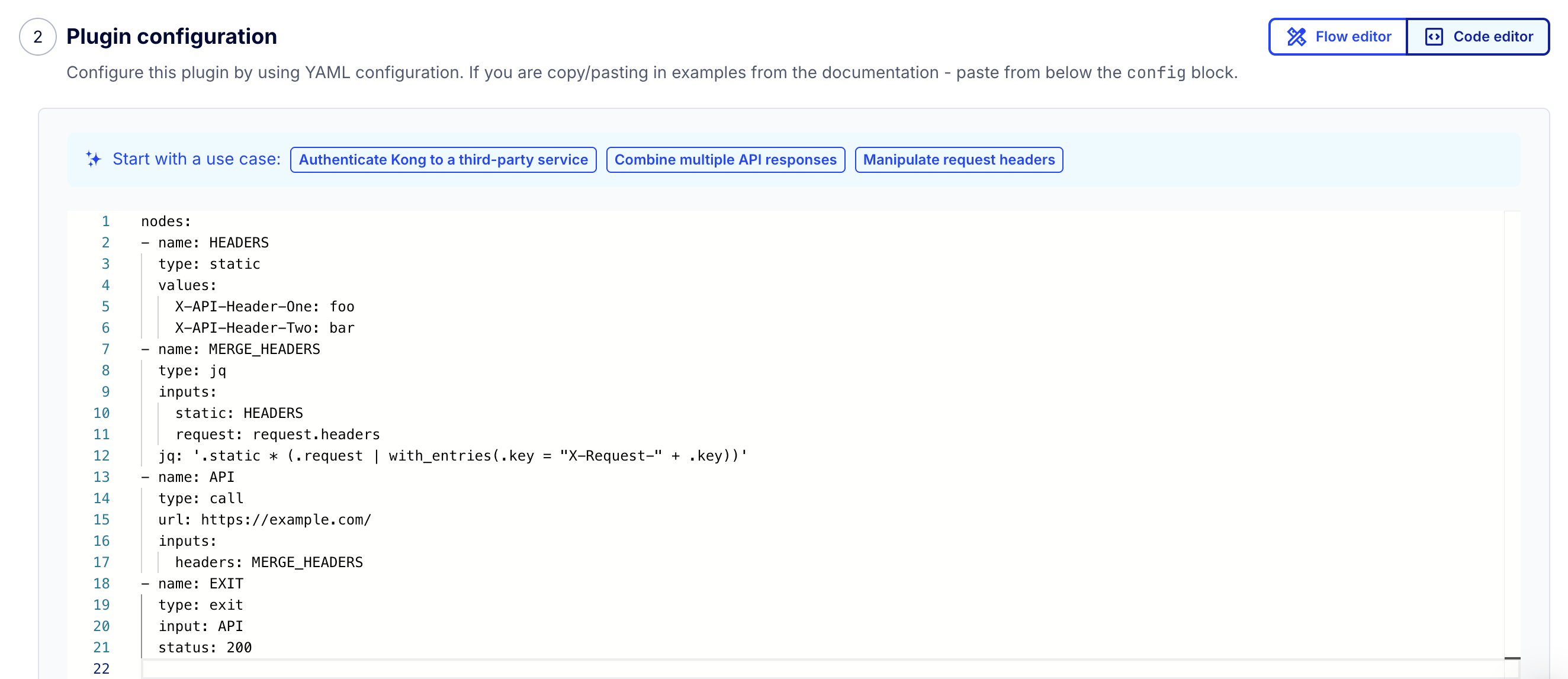Datakit
Introducing Datakit
Datakit is a Kong Gateway plugin that lets you define workflows connecting multiple APIs, transforming their responses, and building dynamic data pipelines—without custom code.
It can:
- Set up internal auth within your ecosystem
- Call and combine third-party APIs
- Modify and transform request or response bodies
- Interact with Kong Gateway runtime data
- Return custom responses directly to clients
- Integrate with Vault and caching systems
Datakit is ideal for complex API integrations, data transformations, and building lightweight backends directly at the edge.

How Datakit works
Datakit executes workflows as sequences of nodes—each node represents a specific operation such as making an HTTP call, transforming data, or retrieving a property from the gateway.
You can link nodes together to create execution flows where the output of one node feeds into another. This makes it easy to build sophisticated integrations that pull, merge, and enrich data from multiple sources.
Examples include:
- Merging responses from two APIs
- Dynamically updating request headers
- Injecting data from Vault secrets
- Returning a custom API response directly from the gateway
sequenceDiagram actor Client participant Datakit participant CatFacts participant DogFacts Client->>Datakit: Request /animal-fact Datakit->>CatFacts: Fetch cat fact Datakit->>DogFacts: Fetch dog fact CatFacts->>Datakit: Return fact DogFacts->>Datakit: Return fact Datakit->>Client: Merge & return combined JSON response
Node types
Datakit provides a flexible set of node types that form the building blocks of any workflow:
-
branch: Execute different nodes based on input conditions -
cache: Store and fetch data from cache -
call: Send HTTP requests to external APIs -
jq: Transform data and cast variables usingjq -
exit: Return directly to the client -
property: Read and write Kong Gateway properties -
static: Define static input values -
json_to_xml: Convert JSON data into XML format -
xml_to_json: Convert XML data into JSON format
Datakit also supports implicit nodes such as request, response, vault, and service_request, which represent gateway lifecycle events.

Debugging and development
Datakit includes built-in debugging and execution tracing features to make it easier to troubleshoot node connections and data flow.
- Enable the
debugoption to expose node execution errors in responses. - Add the
X-DataKit-Debug-Traceheader to get a full node execution trace, including timing, dependencies, and failures. - Trace reports include node status (
NODE_ERROR,NODE_COMPLETE, etc.) and dependency chains for in-depth analysis.